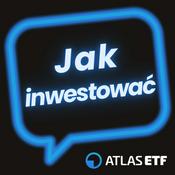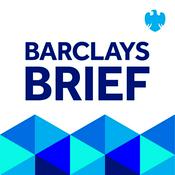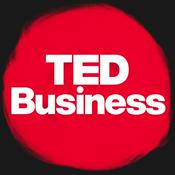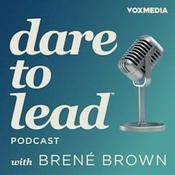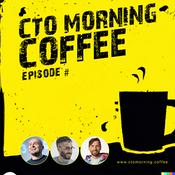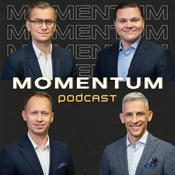19 odcinków
- This in‑depth conversation with JL Collins traces his journey from early lessons watching his self‑employed father struggle, through his own decision in his twenties to live on half his income and relentlessly invest the rest. Jack and JL unpack the core ideas behind The Simple Path to Wealth: F‑You Money as the foundation of freedom, the power of very high savings rates, and why a single broad US index fund like VTSAX (or its ETF twin VTI) sits at the center of his philosophy.
They explore contested topics such as concentrating in US stocks versus global diversification, whether two asset classes (stocks and bonds) are really enough, and why JL remains skeptical of gold, real estate empires, and complex alternative strategies. Drawing on stories from Pathfinders, JL shares real‑world examples of late starters and ordinary earners who reached financial independence far faster than they thought possible, simply by committing to the path and letting compounding work.
The episode closes with a deep dive into the 4% rule, withdrawal strategies in retirement, and JL’s broader views on lifestyle inflation, defining “enough”, and what he hopes his legacy will be for future generations of investors.
powered by ETFatlas.com - This comprehensive presentation challenges the common assumption that investing exclusively in U.S. equities through the S&P 500 is the optimal choice, instead advocating for a globally diversified approach using ETFs like MSCI ACWI. While acknowledging that U.S. stocks have delivered superior returns (10.48% CAGR vs. 8.95% for developed markets) over the past 100 years and currently represent 60%+ of global market capitalization, we emphasizes that historical dominance is no guarantee of future performance—citing Japan's decline from 30% to 5% of global market cap as a cautionary tale.
The core argument centers on portfolio survival rather than maximization: a globally diversified portfolio naturally maintains significant U.S. exposure while hedging against the concentration risk of being fully invested in a single country. For passive investors seeking simplicity and peace of mind, the recommendation is to hold a market-cap-weighted global index like MSCI ACWI or FTSE All-World, which provides both the growth potential of U.S. markets and protection across multiple geographic regions. The key insight is that diversification doesn't mean abandoning conviction in high-performing markets—it means owning the entire market structure rather than betting everything on one horse.
powered by ETFatlas.com - The episode explains why traditional schooling teaches many abstract subjects but almost no practical money skills, even though everyone must manage money for decades. It shows how even “small” inflation, like 3% per year, slowly destroys the value of cash, so doing nothing is actually losing money. Because of this, we are all forced to invest and choose between different assets like stocks, bonds, real estate, and managed futures.We argue that stock picking and trying to “beat the market” usually fails, even for professionals, mainly because markets are very efficient and fees are high. Instead, the proposed solution is simple index investing: buying ETFs that own the whole market and letting the index automatically remove losers and add winners. A “boring” diversified portfolio of global stocks, managed futures, and bonds, rebalanced once a year, has historically delivered strong returns with manageable risk.
The key edge is not being smart, but being disciplined, ignoring the news, and avoiding behavioural mistakes like panic selling, overconfidence, and FOMO.
Agenda
Why traditional education fails to teach practical finance
How inflation forces everyone to invest
Why active stock picking and “being smart” usually do not work
The case for index investing and a simple diversified portfolio
Discipline, behaviour, and the “slow money, big results” mindset
powered by ETFatlas.com The Paradox of Skill: Why AI Makes Active Investing Harder, Not Easier (Larry Swedroe)
26.12.2025 | 1 godz. 14 min.In this second round with Larry Swedroe, we explore what evidence‑based investing really means in today’s late‑2025, AI‑driven markets. Larry explains why rising skill and technology shrink alpha, turning most active management into a loser’s game and pushing investors toward low‑cost factor strategies rather than stock‑picking “genius”. He discusses value, momentum, private credit and goodwill traps, shows why passive flows have not made it easier for active managers to win, and warns about high‑fee structures in the asset‑management industry. Larry also touches on quantum computing as a tail risk for financial systems and crypto, and argues that investors should stop chasing elusive alpha and instead build disciplined, diversified portfolios of proven factors and low‑correlation alternatives.
Why alpha is shrinking in an AI‑driven, highly skilled market and why active management has become a loser’s game.
What investors can really learn from Warren Buffett and the value factor, especially in an intangible‑heavy economy.
Why passive flows haven’t made it easier for active managers to win, despite common claims to the contrary.
How combining value and momentum, and avoiding goodwill and private‑credit traps, can build more resilient portfolios.
How quantum computing could threaten financial systems and cryptocurrencies, reinforcing Larry’s skepticism toward crypto.
Why investors should shift from chasing alpha to building diversified exposure to proven factors and low‑correlation alternatives.
powered by ETFatlas.com- In this episode, we sit down with William Bengen, the legendary creator of the “4% Rule” that revolutionized retirement planning worldwide. Bill shares his unique journey from an MIT aerospace engineer to a financial planner, explaining how he used historical data to solve the “how much can I spend” dilemma. He dives deep into the critical concepts of “Sequence of Returns Risk” and explains why inflation is actually a more dangerous enemy to retirees than stock market crashes.
The conversation explores his latest research, which updates the safe withdrawal rate to 4.7% (or higher) by utilizing what he calls the “Four Free Lunches” of investing. Bill also analyzes the current market environment of late 2025, discussing how high Shiller CAPE valuations and moderate inflation impact today’s withdrawal strategies. Beyond the numbers, he touches on the psychological aspects of spending, the validity of the FIRE movement, and his personal “four pillars” for a happy retirement. Finally, Bill shares a moving personal story about finding love again after loss, proving that retirement is about much more than just a spreadsheet.
Agenda
Introduction to William Bengen: From aerospace engineering to the family bottling business and financial planning.
The origin of the 4% Rule: How a lack of industry answers led to groundbreaking historical research.
Sequence of Returns Risk: Why the order of investment returns matters more than the average.
The Inflation Threat: Why permanent price increases are more damaging than temporary bear markets.
Defining “SafeMax”: The philosophy of planning for the worst-case historical scenario.
The “Four Free Lunches”: Diversification, Rebalancing, Asset Class Tilting, and Equity Glide Paths.
Market Analysis 2025: Discussing high Shiller CAPE ratios and their impact on today’s withdrawal rates.
The FIRE Movement: Can early retirees with 50-year horizons rely on the 4% rule?
The “Underspending” Paradox: Why many retirees end up with more money than they started with.
Alternative Strategies: The pros and cons of fixed-percentage withdrawals versus inflation-adjusted spending.
Bengen vs. Morningstar: The difference between historical “SafeMax” data and forward-looking return forecasts.
The Four Pillars of Retirement: Health, Friends/Family, Passions, and Finances.
Personal Journey: Bill’s experience with grief, finding new love, and life as an aspiring novelist.
powered by ETFatlas.com
Więcej Biznes podcastów
Trendy w podcaście Biznes
O ETFatlas: Mastering the Craft of Investing
Welcome to ETFatlas, where investing meets intelligence. Through expert interviews and actionable insights, we're charting the course for your investment success. Join us as we master the craft of investing together.Powered by ETFatlas.com
Strona internetowa podcastuSłuchaj ETFatlas: Mastering the Craft of Investing, The Diary Of A CEO with Steven Bartlett i wielu innych podcastów z całego świata dzięki aplikacji radio.pl
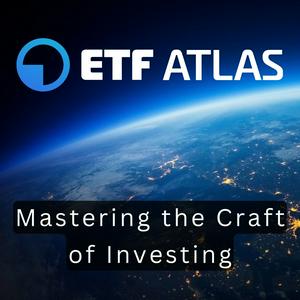
Uzyskaj bezpłatną aplikację radio.pl
- Stacje i podcasty do zakładek
- Strumieniuj przez Wi-Fi lub Bluetooth
- Obsługuje Carplay & Android Auto
- Jeszcze więcej funkcjonalności
Uzyskaj bezpłatną aplikację radio.pl
- Stacje i podcasty do zakładek
- Strumieniuj przez Wi-Fi lub Bluetooth
- Obsługuje Carplay & Android Auto
- Jeszcze więcej funkcjonalności


ETFatlas: Mastering the Craft of Investing
Zeskanuj kod,
pobierz aplikację,
zacznij słuchać.
pobierz aplikację,
zacznij słuchać.





